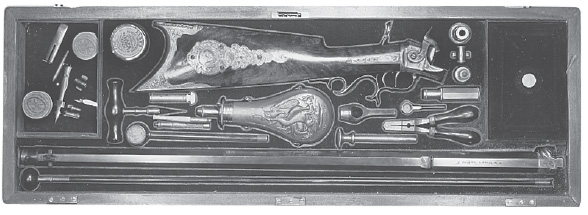Learn the 3 Keys in Determining the Value of Guns: Demand, Rarity, and Condition
This 13-page download teaches how to evaluate gun values on new firearms, as well as fair gun resale values for used and antique firearms. It shows how gun condition and rarity can influence gun prices of used and antique firearms and how to begin researching a gun so you don’t pay too much or sell for too little.
Factors for determining antique firearm values and gun prices of newer models are covered including demand, rarity, and condition. Too, the download explains common gun condition grading systems from Factory New to Poor. Also includes a bonus chapter on how to protect your gun collection with a proven record-keeping system so your treasures maintain their value when passed down to future generations.
In this gun values free download, you’ll learn:
• How to determine gun values
• How condition and rarity affect gun prices
• How to use gun condition grading systems
• How to properly identify a gun to know its true value
• All about cased sets and engraved guns
• How to protect your gun collection with a proven record-keeping system
• And more!
Get a fair price for your firearms! Grab this gun values online free download today!
To receive your free download, join our mailing list and never miss news, tips, promotions or discounts.

Here’s a Sneak Peek Inside Your Free Guide to Gun Value:

Outstanding gold and silver mounted percussion sporting rifle in its original fitted case with accessories c.1850. Made by Daniel B. Wesson of Hartford, Conn. who, in 1854 with Horace Smith, founded one of America’s most famous arms manufactories: Smith & Wesson. (from N. Flayderman & Co. Catalog No. 104 of Oct., 1980)
Fundamental to establishing value is accurate identification of the gun. The mere similarity of a piece in contour and shape to one pictured herein or in another reference work, is hardly sufficient to conclude that the specimen is identical.
Looks are deceiving when it comes to determining the fine points of gun identification and, consequently, value; jumping at conclusions is often dangerous and costly.
There can often be great variances in price within a single model or type—which to the casual observer all look alike. A slight difference in markings, placement of screws or seemingly minor parts all play highly important roles in identification.
One should conclude that the specific piece certainly possesses an interesting potential and is well worth further research into its background and identification.
